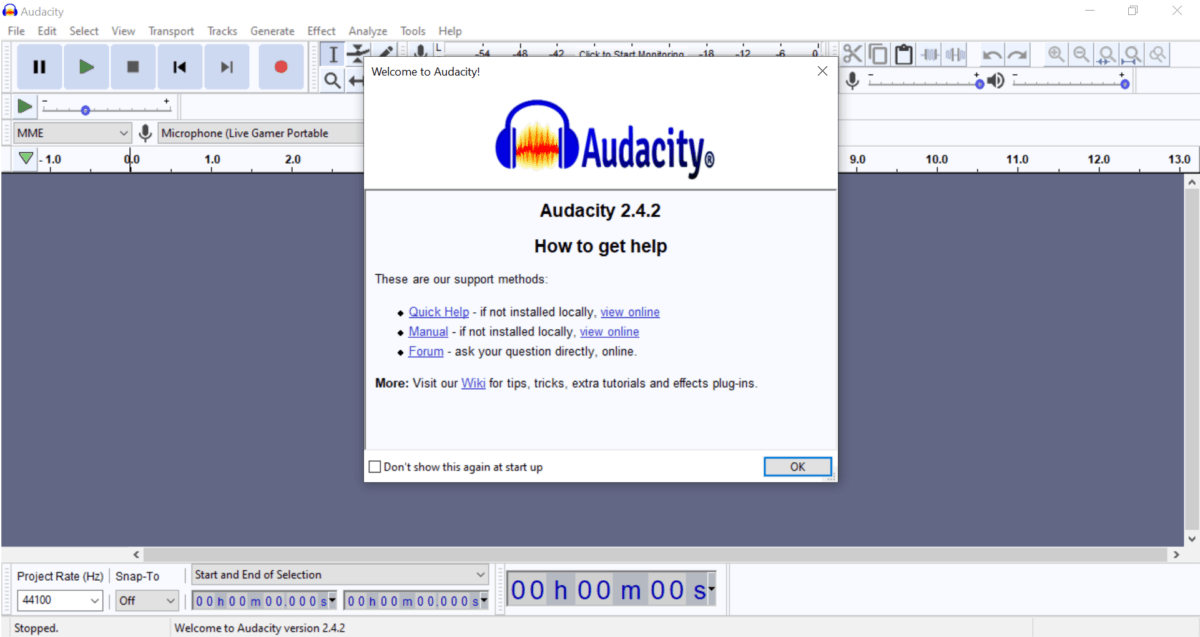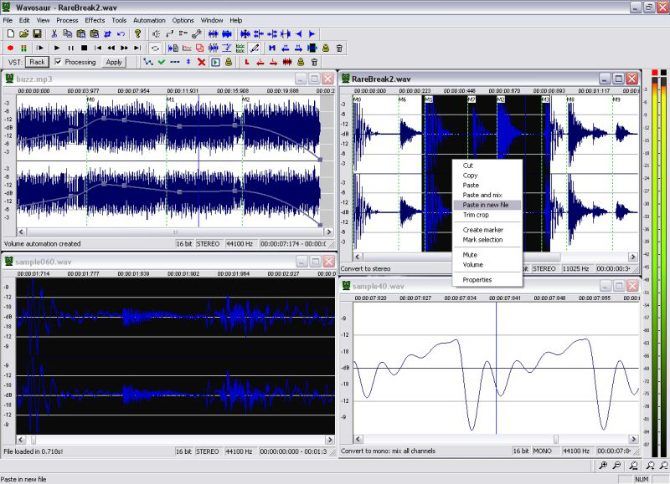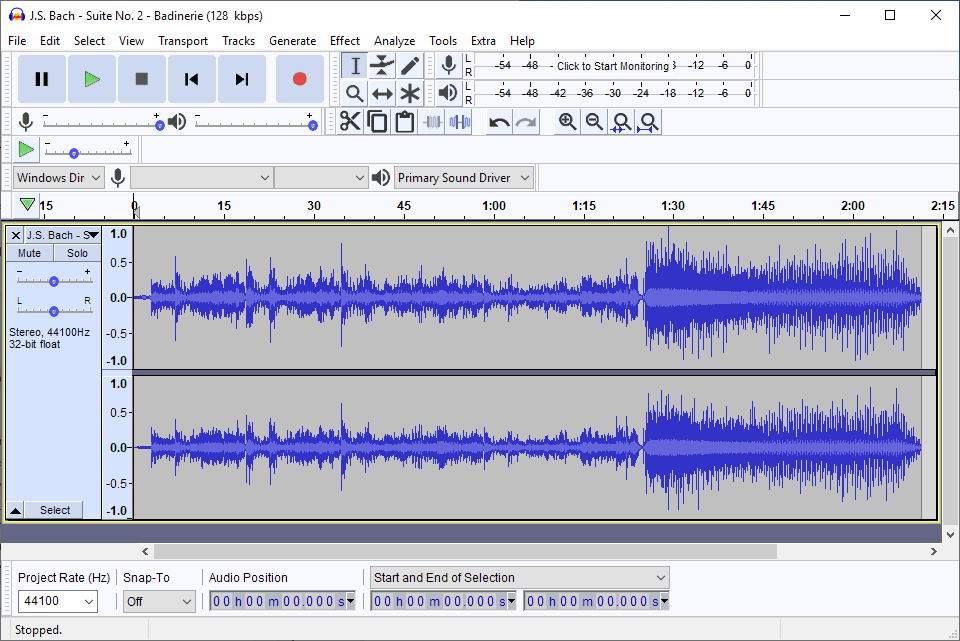

- WHAT ARE OTHER PROGRAMS THAT ARE LIKE AUDACITY SOFTWARE
- WHAT ARE OTHER PROGRAMS THAT ARE LIKE AUDACITY WINDOWS
I can't speak enough of the "frequency splitter" function in Audition. Another fix for crackling noises from clipped digital audio in Audition is to use the Restoration ->Remove Clicks/Pops feature (usually for removing clicks/pops from records, but works well on crackling from clipped audio too). Works well for crackling noises, and/or overloaded frequencies.Īfter repairing the individual bands, remix the several tracks of individual bands back into one single track.Ģ. This will allow you to manipulate the individual bands, reducing volume of offending bands, or applying filters to remove the undesired effect from clipping. Use the "frequency splitter" function, split the track(s) in question into several different different tracks of different frequencies. clipping can produce any number of undesired effects (distorted sound, crackling audio, loss of fidelity/intelligibility, etc.), so it depends on your desired end result.ġ. Your question needs to be more specific, i.e. Would anyone like to process these with –12.1 and –9.3 dB thresholds and submit here?

Another one is a real-life clipped recording that has been sent in for restoration and does not have a ground truth. One has been manually clipped –12 dBFS from a clean ground-truth recording. I can propose a couple of samples that I used for my own tests. But this simple test still makes sense for evaluation of interpolator quality. In practice, clipping is not always “digitally perfect”: sometimes there's some ringing around the clipped parts, sometimes clipping is “soft” or asymmetric in level. Yes, this is totally fair! It would be nice to make an objective test of declippers. Quote from: Kees de Visser on 09:02:45 Would this be a fair test?:Ģ-restore clipped parts with declipper DSPģ-compare declipped signal to original (level matched) But it works well, and despite his lack of time Monty still fixed a bug I reported within a day.

Monty hasn't had a lot of time to work on Postfish in recent years, and sure, it could use some polish, porting, and documentation. I haven't looked into it enough to understand its declipping algorithm well Monty gave a brief blurb in his original announcement.
WHAT ARE OTHER PROGRAMS THAT ARE LIKE AUDACITY WINDOWS
The only downside is that it only runs on *nix and so if you're on Windows you'll need to use a VM. Postfish, from Monty of, does a vastly superior job of declipping and has a number of other useful tools too (for instance, I've usually used compression/soft limiter in conjunction with declipping so I can get a less-distorted version without reducing the gain all that much). If you only had isolated instances of clipping you'd likely get better results by using Audacity's repair tool, which uses least squares autoregression to interpolate. It is also rather slow for what it does (memory management issues, limitations of Audacity's Nyquist interpreter). sinusoids except over a very short window.

That takes little very little context into account-only a couple samples before and after each clipped region- and a cubic spline is not a great fit for e.g. It just fits a cubic spline to the edges of the clipped regions. The audacity clip-fix plugin others have mentioned, which Ben Schwartz wrote as a one-off back in his undergraduate days, will do a moderately reasonable job for mild clipping but that's it. We do have audio interpolation algorithms that do a reasonable job but I think it's an exaggeration to call any such thing a "solved problem."
WHAT ARE OTHER PROGRAMS THAT ARE LIKE AUDACITY SOFTWARE
My other thought is that intelligent software could make some determinations about the target response by analyzing non-clipped segments.ĭeclipping, as an interpolation/reconstruction problem, will never give you perfect results. They would overdrive analog tape so that its fairly soft perhaps even euphonic saturation curve which was both frequency and amplitude sensitive replaced the sharp-edges effects of electronic clipping. Problem being, the source of the chopped-off info is a variety of sources, each with its own harmonic structure, etc.īack in the day people used the saturation of analog tape for a similar purpose, and it could work. If I think about the problem that is being solved, I can see how effective solutions may be elusive.īasically, a chunk of signal is chopped off and gone forever. That's my experience with the clipping corrector in CEP 2.1/Audition. Quote from: Alexey Lukin on 06:32:20 ReLife is useless: it makes the waveform appear better, but does not change the sound: all the distortion is still there.


 0 kommentar(er)
0 kommentar(er)
